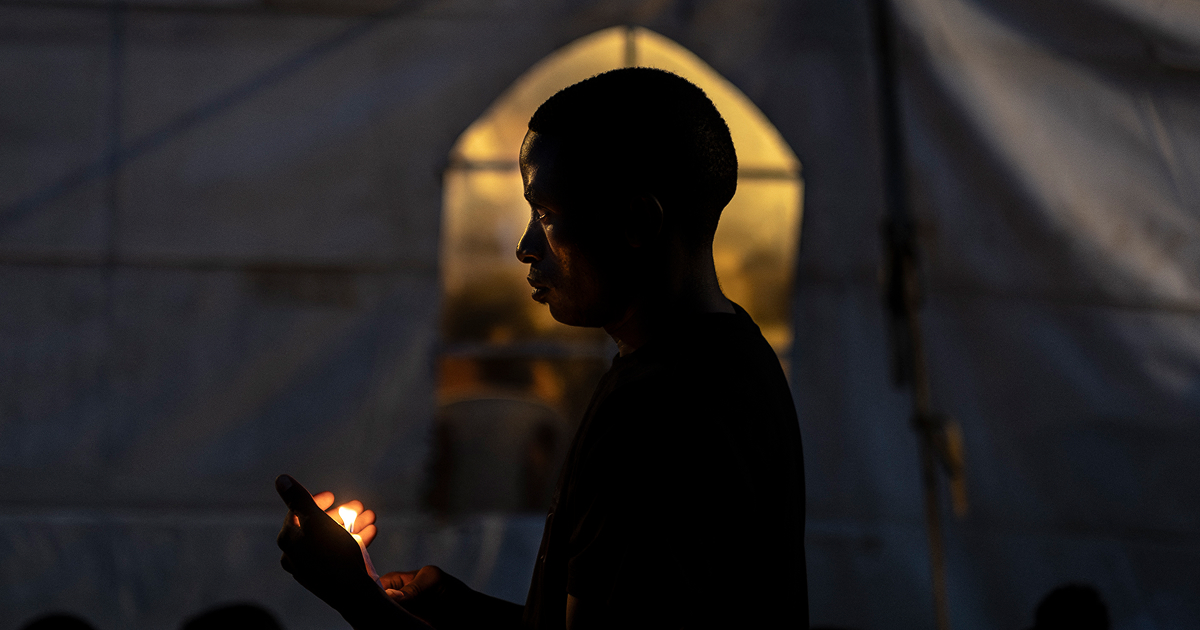The rapid advance of artificial intelligence (AI) technology twinned with its application to IVF (in vitro fertilisation) could lead to a dystopian situation in which thousands of embryos are used in a single round of treatment.
Amounting to a modern form of infanticide at a “potentially industrial scale”, the use of assisted reproductive technology procedures bolstered by AI is being influenced by the resurgence of pre-Christian pagan cultural practises, warns Charles Camosy, a teacher of bioethics and moral theology at the Catholic University of America.
Writing for UnHerd, a British news and opinion website that presents itself as offering a platform for alternative and under-represented voices, Camosy notes that the "pagan Greeks and Romans had no trouble dehumanising newborns, and they thought nothing of making choices about which babies should live and which die, based upon their own needs and desires".
Jump two millennia forward, to the present day, he adds, "and we come face-to-face with an ascendant worldview not all that different … It, too, carelessly wields the power of life and death over children depending on parents’ desires."
He continues: “Only, it does this with much greater sophistication and at a potentially industrial scale: through reproductive technologies that allow would-be parents to choose their preferred embryo based on intelligence and other characteristics. All from the comfort and familiarity of an app.”
Camosy explains that today “amid the waning of Christian influence in the West, a neopagan revival has filled the void, particularly in medicine. The field increasingly shrugs off a Christian anthropology and thus no longer has the resources to explain why all human beings are equal in dignity.”
He continues: “As with the pagans, the reproductive practices of the consumerist neopagan West are focused not on welcoming children unconditionally as a gift from God – but on optimisation and quality control based on the customer’s desires for a product purchased like any other in a marketplace.”
When you then add capitalist profit-seeking to such practices, he says, “the picture becomes even grimmer."
He highlights how new and emerging reproductive technology companies like Orchid and Nucleus have "developed new technologies they claim can help customers be even more choosy about which of their children will be welcomed into a family and which children will be cast out".
Camosy notes that Nucleus "allows customers to accept or reject these least of our brethren based not only on height, hair colour, and eye colour – but also intelligence and the likelihood of the child developing certain mental illnesses.”
Orchid CEO Noor Siddiqui, he highlights, has not been shy about the kind of cultural changes her company heralds. In a recent video she shared on X, she claims that “sex is for fun, and embryo screening is for babies. It is going to be insane not to screen for these things".
Those "things", according to a New York Times article covering the rise of such designer-baby companies, “presumably refers to conditions like obesity and autism, both of which Orchid says it can screen for.”
In a subsequent New York Times interview with Siddiqui, hosted by NYT columnist Ross Douthat, the columnist, himself a Catholic convert, tried to make the case for a Catholic vision of procreation.
Camosy describes how Douthat read aloud a "beautiful poem about the unchosen gift of children born of sexual union, regardless of the quality and consumer value". Reading the poem left Douthat "visibly choked up", Camosy says, while Siddiqui responded with a blank look on her face.
“What do you mean?” she reportedly commented, before going on to explain that Douthat's view – the poem’s view, the Catholic view – has, in Camosy's words, "already been left in the dust".
Camosy goes on to suggest that Siddiqui and her colleagues likely “live out many praiseworthy virtues”, though he notes that while “they aren’t moral monsters – though they are promoting, on a massive scale, morally monstrous practices”.
Such practices are likely going to get worse before they get better, he cautions.
“Soon we will be able to coax virtually any somatic cell to become an egg or sperm cell, with the result that single rounds of IVF will produce, not 15 embryos, but 15,000 of them. And assuming companies like Orchid and Nucleus will be around, they will undoubtedly use sophisticated AI technologies to screen this much larger set, pick the desirable one or two, and discard the rest.”
One of the results of this, Camosy argues, is that “our society’s already wide class-based inequalities will be compounded by the biological advantages accruing to the children born on the upper social rungs.”
He explains: “Class (defined by one’s place in the social production process) will be reinforced by new conditions of biological caste, giving rise to a new biopolitics: having a child with a disability or a less-than-sculpted body will consign people to the lower castes.
“Later on, as these practices become cheaper and more widely available, a sort of soft compulsion will likely bear down on all parents to optimise their kids (health insurers might decline to cover claims associated with non-optimised children). Having children the old-fashioned way will be the mark of a few 'insane' religious fanatics."
Camosy's warning coincides with the recent news that women aged 35 and older who are undergoing IVF treatment could conceive successfully and give birth to a baby more quickly through the implementation of genetic screening of embryos, according to a recent medical trial in the UK.
The study by researchers at King’s College London university, King’s College Hospital and King’s Fertility has found that “preimplantation genetic testing for aneuploidy” (PGT-A) – a test that checks embryos for the correct number of chromosomes – appeared to help participants become pregnant in fewer embryo transfers.
Among 100 women aged 35 to 42 that the trial looked at, those who received PGT-A testing had a 72 per cent “live birth rate” after up to three transfers, compared with 52 per cent for those who did not receive the test.
Researchers say the approach could reduce the emotional strain of IVF by lowering the risk of miscarriage and implantation failure and, thereby, “also reducing the emotional toll of repeated unsuccessful cycles”.
The Catholic Church, however, while acknowledging the great strains on couples struggling to conceive and have children, maintains a position of not supporting or endorsing IVF, especially the storage and use (and loss) of multiple embryos – the numbers of which, based on current IVF practices, are far smaller than the potential numbers suggested by Camosy.
Despite Camosy's bleak prediction, he finishes on a note of optimism.
“Christianity, especially Catholic Christianity, is on the move again, especially among pockets of the young in the United States and Europe," he says. "One of the hallmarks of the ancient Christians was their resistance to pagan reproductive practices.
“Dare we hope that one of the hallmarks of the 21st-century Christian revival will also be resistance to the neopaganism of the Siddiquis of the world? It may be the only force that can stave off dystopia.”
RELATED: Genetic testing of embryos during IVF could ‘help women over 35 conceive faster'
Photo: US President Donald Trump delivers remarks after signing an executive order on expanding access to IVF at his Mar-a-Lago resort, Palm Beach, Florida, 18 February 2025. (Photo by Joe Raedle/Getty Images.)





.png)











